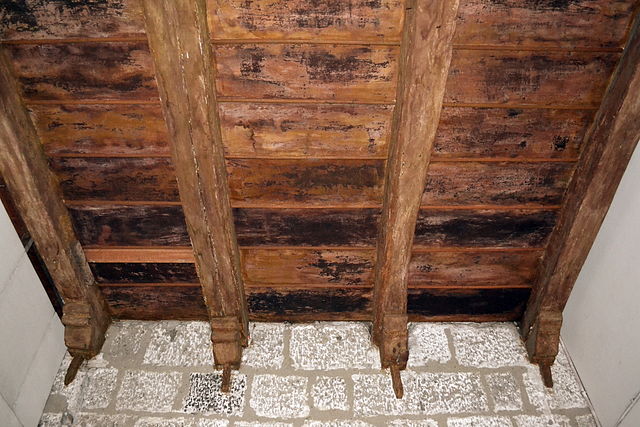How to Stay Safe in the Extreme Summer Heat
Summer is finally here, but now that it is, we should be careful what we wish for. Heat is the number one summer-related killer as it pushes the human body past its limits. It actually results in the highest number of annual deaths among weather-related hazards. And if there is high humidityHumidity is the amount of moisture or water vapor present in... More as well as extreme heat, evaporationEvaporation is the process by which a liquid, such as water,... More occurs at a much slower rate, making the body work harder to maintain a normal temperature.
What is a Heat Wave?
A heat wave is a long period of extreme heat and is often associated with high levels of humidityHumidity is the amount of moisture or water vapor present in... More. These types of conditions can be dangerous and even life-threatening for some people if proper precautions are not taken.
About Heat-Related Illnesses

Almost all heat disorders occur because the victim was exposed to too much heat or had exercised too much in the heat.
Almost all heat disorders occur because the victim was exposed to too much heat or had exercised too much in the heat. There are also conditions that can induce heat-related illnesses, such as poor air quality and stagnant atmospheric condition.
Here are some important tips to remember about extreme heat:
- Extreme heat can occur quickly without warning
- HumidityHumidity is the amount of moisture or water vapor present in... More increases the feeling of heat, measured by a heat index
- Older and sick adults, children, and sick or overweight individuals are at a higher risk to extreme heat
- People living in urban areas face a higher risk than those in rural areas
- Asphalt and concrete store heat longer and release it at night, resulting in higher nighttime temperatures
What to Do During an Extreme Heat Warning:
- Wear light clothing
- Watch out for heat illness
- Drink lots of fluids
- Watch for heat exhaustion, heat stroke, and heat cramps
- Never leave people or pets in a closed car
- Check on family members and neighbors
- Avoid strenuous activities
- Find air conditioning
How to Stay Safe During Extreme Summer Heat:
- Listen to any and all updates from the National Weather Service
- Never leave children or pets alone in closed vehicles
- Avoid extreme temperature changes
- Limit all intake of alcoholic beverages
- Check on all pets to make sure they are not suffering from any heat illness and that they have plenty of water and shade
- Take frequent breaks if you are working outdoors
- Avoid going outside alone; bring someone with you
- Slow down and stay inside if possible to avoid intense physical activities during the hottest parts of the day
- Wear loose-fitting, light-colored, lightweight clothing
- Stay on the lowest floor of the property, away from the sunlight
- Drink lots of water and avoid drinks with caffeine
- Eat fruits and vegetables; they are full of water and nutrients but don’t take lots of energy to digest
- Wear sunscreen to keep your skin protected from burns
- Eat smaller meals more often. If someone you know is on a special diet, ask a doctor how to accommodate it
- Avoid using electric fans when the temperature is over 95 degrees. They will only create air flow and a false sense of comfort, not lowering the body temperature.
- Check yourself, family, and friends for any signs of heat-related illness
- If you’re not at home, look for places with air-conditioning, such as community centers with pools if possible, shopping malls, and libraries.
How to Prepare for Extreme Summer Heat
- Build a disaster preparednessPreparedness is the state of being ready to respond to emerg... More kit and make a family emergency plan
- If you are installing window A/C units, make sure they fit snugly and insulate them if necessary
- Check all A/C air ducts to make sure they are insulated properly
- Keep storm windows up all year
- Become CPR-certified and first-aid-trained to know how to treat heat-related illnesses
- Be aware of the elderly, young, or those in poor health as they are more likely to experience heat-related illnesses
- Listen to the National Weather Service to stay updated on the upcoming changes in temperature
- Install temporary window reflectors to use between windows and drapes, such as covered cardboard or aluminum foil to reflect heat back outside
- Weather strip door and sills to keep the cool air in
- Cover any window that allows morning and afternoon sun with drapes, blinds, awnings, or louvers
First Aid Supplies for Heat-Related Illness Symptoms
- Sunburns: Take a shower using soap to remove any oils that may block pores to allow the body to cool naturally. Apply sterile, dry dressings to blisters and get medical attention.
- Heat Cramps: Move the victim to a cool location, lightly stretch and massage the muscles to relieve the spasms. Give the victim sips of half glasses of water every 15 minutes but stop if they become nauseated.
- Heat Exhaustion: Move the victim to a cool place, loosen or remove clothing. Apply wet, cool towels, and give them sips of water if they’re conscious (make sure it’s consumed slowly). Discontinue if they become nauseated and get them medical attention if they start vomiting.
- Heat Stroke: Call 911 right away or move them to a hospital as any delay can be fatal. Remove all clothing, placing them in a cool bath or wet sheet to lower their body temperature. Watch for any breathing issues and use extreme caution.
Avoid Property Damage During Extreme Heat
As extreme heat is associated with high levels of humidityHumidity is the amount of moisture or water vapor present in... More, building materials face higher levels of moisture leading to water damage and possibly moldMold is a type of fungus that grows in damp or humid conditi... More growth. Common areas affected can include drywall, hardwood flooring, ceiling tiles, and insulationInsulation is a material used in buildings to reduce the tra... More. As soon as you find any sign of water damage, make sure to have it repaired right away to prevent it from spreading or turning into moldMold is a type of fungus that grows in damp or humid conditi... More.
Air conditioning units are also big producers of water, and any leaks sitting on windowsills can ruin the building materials. As the water sits, bacteria grows, followed by moldMold is a type of fungus that grows in damp or humid conditi... More, which can deteriorate the structureStructure refers to the framework or components of a buildin... More at a faster rate.
Water Damage RestorationWater damage restoration is the professional process of clea... More and Mold RemediationMold remediation is the process of identifying, removing, an... More
While it’s important to address water damage and moldMold is a type of fungus that grows in damp or humid conditi... More as soon as possible, especially with high levels of humidityHumidity is the amount of moisture or water vapor present in... More, they should be repaired by a professional. Especially in cases of moldMold is a type of fungus that grows in damp or humid conditi... More, a certified mold remediation service should be called to make sure it’s removed at the source. This service would also ensure that it doesn’t spread to any other area in the process.












